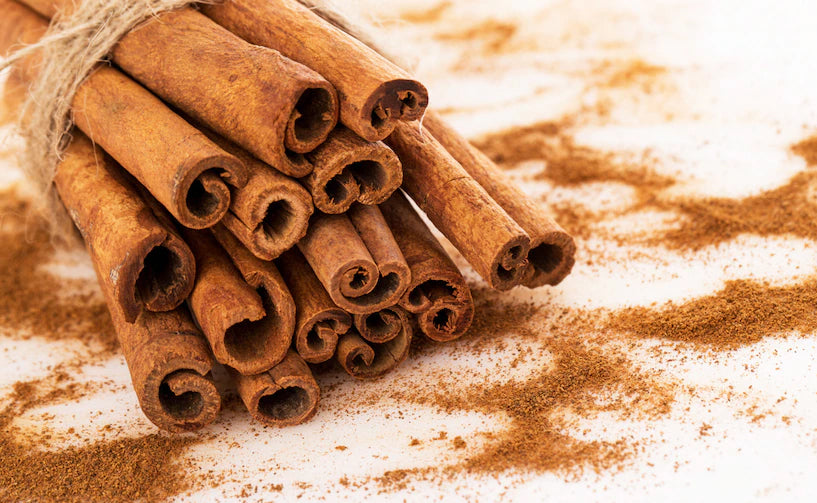Cinnamon, a mild brown coloured bark, belongs to the family Lauraceae. It is widely used as a spice and is native to South America and Southeast Asia. It comes from the trees of Cinnamomum and has been used since the Ancient Egypt to cure sore throat, cough and joint disorders. It is one of the most famous spices having health benefits.
Cinnamon is obtained from the inner bark of trees found in India, Indonesia and China. It is an evergreen tree with a characteristic sweet fragrance, oval leaves, berry fruit and thick bark.
Commercially there are two types of cinnamon available, true cinnamon or Ceylon cinnamon (Cinnamonum Verum) an expensive variety. The second is Chinese cinnamon (Cinnamomum Aromatic) or cassia cinnamon which is the cheaper variety and widely used in food industry and personal care products such as toothpastes, perfumes and fragrances.
Cinnamon is a famous aromatic and flavoring spice and is used in breakfast cereals, snacks, buns, breads, rolls, sweet dishes (pudding, desserts, bars, ice-creams), beverages (tea, coffee, herbal tea), soups, flavored rice, curries and traditional food and is a part of one of the most famous spice blends known as Garam Masala.
The principal components of cinnamon are an essential oil Cinnamaldehyde and an aromatic component Eugenol which are chiefly responsible for its sweet taste, aroma and therapeutic benefits. Cinnamate, cinnamic and other polyphenols also impart similar properties to cinnamon. Cinnamon oil is widely used for respiratory problems caused by fungus and prevents some bacterial growth as well. All these phytogenic natural chemicals perform well defined functions including anti-inflammatory, anti-microbial, anti-fungal, anti-oxidant and anti-diabetic and immunity booster along with protection from major diseases.
Benefits of Cinnamon
-
Protective Agent: Cinnamon is rich in antioxidants and anti-inflammatory ingredients so it may be helpful in managing certain heart ailments and cardiac diseases, cancer, arthritis, diabetes and several neurodegenerative diseases such as Parkinson’s and Alzheimer’s as it helps improve the functioning of neurotransmitters and protect neurons.
-
Manages Diabetes: Regularly consuming Cinnamon has a beneficial effect on blood glucose, cholesterol and HDL levels and may reduce LDL and triglyceride levels. Cinnamon also improves insulin sensitivity and even may prevent insulin resistance at the same time. A published research on diabetes found that Cinnamon is helpful for Type-2 diabetes; it may improve lipid and glucose level, if taken on a regular basis.
-
Weight Loss: Cinnamon has a thermogenic effect and increases metabolism. It also reduces appetite and prevents storage of fat in the body. Hence, it aids weight loss.
- Anti-Oxidant and Anti-Inflammatory: These properties make it a beneficial ingredient to add to your plate, a little pinch of cinnamon approximately around half teaspoon will impact your heath and uplift your mood too. The polyphenols in cinnamon will help clear out waste from your body and fight free radicals thereby improving your skin.
Cinnamon and Safety: Though Cinnamon is a safe spice it may trigger an allergy in people who are prone to the food allergies (approximately 2 percent of global population) due to the presence of proteins. Symptoms may be mild or severe, such as swelling, itching, nausea, diarrhea, tingling sensation, stomach pain, dizziness, rashes and sometimes blisters on the skin.






